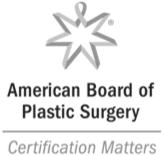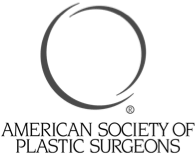Membership in the Local Plastic Surgery Society May Be the Most Important Credential
In an effort to help patients understand the important credentials that they should look for in a plastic surgeon, I offer this discourse:
As part of a patient’s due diligence in researching the qualifications of their prospective plastic surgeon, they frequently will notice the surgeon’s memberships in professional organizations. Some surgeons are members of a few organizations; some are members of none; and some are members of many. While it’s probably not not an issue if the surgeon is only a member of a few organizations, the surgeon’s failure to belong to any professional societies can signify some type of problem.
Most plastic surgeons who are board-certified (the American Board of Plastic Surgery is the most recognized board for plastic surgeons to join, and the only board that is legitimate in the laws of many states such as Utah) will belong to the American Board of Plastic of Surgery. It is sort of the “granddaddy” of plastic surgery societies. This is a well-established national organization that has been in existence since 1931. They purport to represent 94% of the practicing plastic surgeons. Membership in the organization requires board certification in Plastic Surgery, hospital privileges for any procedure that is performed in a facility outside of the hospital, all procedures must be performed in a certified surgical facility (either JACHO, AAAHC, Medicare, State, or AAAASF certifications), yearly continuing medical education, and adherence to a rigid set of ethical standards. When looking for a general plastic surgeon, membership in ASPS is helpful to know that this physician has the basic certifications and follows routine ethical principles to be competent.
Another large national plastic surgery organization is the American Society for Aesthetic Plastic Surgery (ASAPS). This group is equally prestigious and rigorous in membership requirements, demanding that plastic surgeons also meet those criteria noted above for the American Society of Plastic Surgery. Because this organization is dedicated to cosmetic surgical procedures, membership in this organization reflects the member surgeon’s heightened interest in these procedures over general plastic surgery and reconstructive concerns. When looking for a cosmetic surgeon, ASAPS membership is quite important in my mind.
For those plastic surgeons who enjoy the camaraderie and love of travel that is made possible through the collaboration with their colleagues from around the world, the ISAPS is one organization that fosters those activities. The International Society of Aesthetic Plastic Surgery is the foremost entity sponsoring fellowship among plastic surgeons who focus on cosmetic (or aesthetic) plastic surgery. Like these other groups participation is limited to international plastic surgeons who are qualified and experienced, have a record of safety, have demonstrated a commitment to ethical practice, and are trained in the safest, most up to date techniques and treatments. Fewer plastic surgeons are part of this group because of the travel requirements and time away from work however, membership does reflect an appreciation for the worldwide perspective of plastic surgery demonstrated by individual members.
That brings us, finally, to the smaller organizations that are more niche in scope. At the top of that list, I’m going to place membership in the surgeon’s local plastic surgery society. Here in Utah, that group is represented by the Utah Plastic Surgery Society. There are similar groups in California, Texas, Georgia, etc. In some instances, there are regional societies that cover multiple nearby states. The Northwest Society of Plastic Surgeons for example, is comprised of members from Washington, Oregon, Idaho, British Columbia, Alaska, and Hawaii.
The reason why I believe that it is ESSENTIAL for anyone seeking out a plastic surgeon to make certain that their prospective surgeon is a member of that local/regional plastic surgery society is this: membership in these smaller organizations is dependent on the surgeon meeting professional conduct and practice standards and clear cut ethical requirements in the eyes of their local colleagues who know them best. It is definitely possible for a surgeon to be of questionable character and even potentially treat patients in an unethical manner and totally fly under the radar of the larger national organizations. However, it is nearly impossible for those same behaviors to escape the attention of your neighbors and fellow physicians in your community. That is precisely why you may often see more penalties (to include expulsions) occur in these smaller local plastic surgery societies. If your surgeon isn’t a member of his or her local society, that could be a huge red flag. Make sure you look to see.
Hopefully, this gives you a brief overview of the affiliations that your prospective surgeon should have in order to put your mind at ease about his or her qualifications and professionalism.



